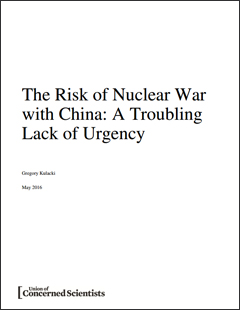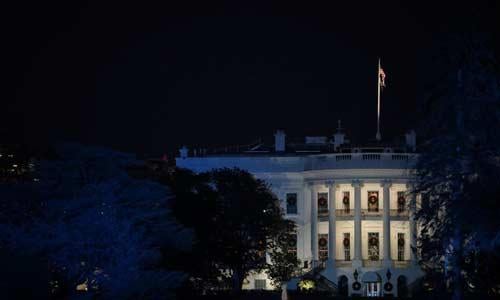Mistrust and misunderstanding have plagued US and Chinese relations for years. Nowhere is this more evident—and more dangerous—than in the contrasting perspectives and policies each country holds on nuclear weapons.
Could simmering tensions lead to a full-blown nuclear war? More specifically: could a minor skirmish or conventional war escalate into a full-blown nuclear conflict? Numerous factors suggest that it could—and that the likelihood of nuclear use between the United States and China may be increasing.
- The two countries have a very contentious history. Despite sincere and occasionally successful efforts to cooperate on shared concerns such as climate change and nuclear terrorism, lack of mutual trust sustains an entrenched and deepening antagonism.
- Both governments are preparing for war. Their preparations include improvements to their nuclear arsenals, including a trillion dollar investment in the United States. Both governments also believe that a demonstrable readiness to use military force—including nuclear weapons—is needed to ensure the other will yield in a military confrontation.
- Discussions of contentious issues are exceedingly inadequate. Their militaries have produced shared understandings of the conduct of naval vessels and aircraft, but strategic dialogues on nuclear forces, missile defenses, and anti-satellite weapons are limited at best.
- United States and Chinese officials see the risk of nuclear use differently. US officials believe that if a military conflict starts, nuclear weapons may be needed to stop it—but Chinese officials assume no nation would ever invite nuclear retaliation by using nuclear weapons first. Their only concern is maintaining a credible threat of retaliation.
These and other factors are exacerbated by recent developments between the two countries, including China’s apparent move toward hair-trigger alert—a policy that increases the risk of accidental nuclear war, especially in the early days of its development.




